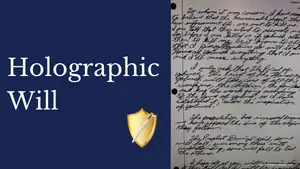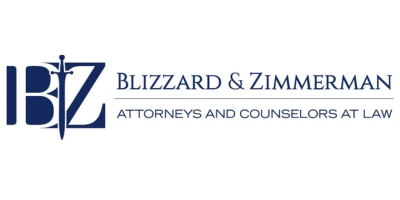
Since October of 2021, after Yisrayl Hawkins, the founder of the House of Yahweh religious group, passed away, there has been a court case in Callahan County, Texas revolving around whether or not his holographic will is legally valid. The enforcement of Hawkins’ will could have a major impact on the future of the House of Yahweh.
According to the will, all of Hawkins’ assets are to be given to the House of Yahweh. The will names several members of the group as beneficiaries, but enforcement of the will has been delayed due to questions about its legal validity. Some members of the group are contesting the will, claiming that it is not valid. The case is still ongoing, and it remains to be seen what the final outcome will be. However, regardless of the outcome, it is clear that Yisrayl Hawkins’ legacy will continue to have an influence on the House of Yahweh for years to come.
According to published reports, a Callahan County, TX judge will decide if two applicants who initially presented his will for probate could be named co-administrators of his estate and be issued Letters of Administration. The applicants claim that at the time of his death, Hawkins owned more than $5 million worth of assets, more than 200 tracts of real estate, more than 10 LLCs that also have properties, and even more.
The will was allegedly hand-drafted by Hawkins in 2008. The applicants are claiming this is a Holographic Will that has been signed by the deceased and is entirely in his own handwriting.
WHAT IS A HOLOGRAPHIC WILL?
As outlined in Statute 251.052 in the Texas Estates Code a holographic will:
- Must be in writing.
- It must be entirely in the Testator’s (Yisrayl Hawkins) hand.
- Must be signed by the Testator (Yisrayl Hawkins).
- The Will must have Testamentary Disposition (specifically Hawkins states who gets what).
- The Will must have Testamentary Nature (intent to make a gift at death that is irrevocable after his death).
Any part of the Holographic Will that is not in the testator’s (Hawkin’s) handwriting will be ignored completely and stricken from the Will.
If this will was not done properly, Hawkins’s entire estate could pass Intestate. That means that a judge would apply the Texas Estates laws for descedant as outlined in Chapter 201 of the Texas Estates code to decide where the Hawkins property goes now after his death.
The objectors also say that the estate, which has an estimated value of over $5 million dollars, is too much for the two initial applicants to handle, and they are requesting a third party who is familiar with probate matters step in. They are also asking that the Court determine Hawkin’s heirs and appoint a Dependent Administrator over the estate pursuant to Texas Estates Code Chapter 202 and Texas Estates Code Chapter 301.
That is because, according to reports, Hawkins allegedly had more than 30 children, and only some of them belonged to the wife he was married to at the time of his death. The objectors claim many of these kids still have to be identified and located.
Objectors say only one notary signed the will, so this does not meet the two-witness requirement which is common for a typical will. However, a holographic will does not require any witnesses.
Texas is one of less than 25 states that allow Holographic Wills.
CONTESTING A WILL
Any interested person may contest the probate of an alleged will. The Texas Estates Code defines “interested persons” to include:
- Heirs,
- Devisees,
- Spouses,
- Creditors,
- Or any other person or entity having a property right in or claim against the estate.
The most commonly recognized grounds to contest a will include:
- Revocation, either by physical act or by a subsequent writing
- Undue Influence (the most common ground that is used)
- Lack of testamentary intent
- Lack of due execution
- Mistake
- Fraud
A will can be contested at many different times depending on the circumstances, but there is a statute of limitations that may prevent contests after admission to probate. The primary enforcement mechanism for a will is through probate, which is the process of having a court validate the will and distribute the assets according to its terms. If someone wishes to contest the will, they must do so during probate proceedings. Once probate is complete, the will becomes a matter of public record and it is much more difficult to contest. There are some exceptions to this rule, such as if new evidence comes to light or if there was fraud or duress involved in the creation of the will, but in general, the statute of limitations prevents most challenges after probate. As a result, it is important to contest a will during probate proceedings if there are grounds to do so.
Generally, the proponent of the will has the burden of proof to prove the will is valid meaning it meets the standard articulated by Texas Estates Code Chapter 251, and it was never revoked.
If a contest is filed after the will has been admitted to probate, the contestant has the burden of proof by a preponderance of the evidence that the will is invalid.
If you are not sure whether you are within the time limit to contest a will or trust or wish to learn about your options Blizzard and Zimmerman probate attorneys can help.
Related Links-
Big Country Homepage.com: Is This Will Valid?
Abilene Reporter-News: Yisrayl Hawkins, longtime leader of House of Yahweh, dies at 87
House of Yahweh- Wikipedia

